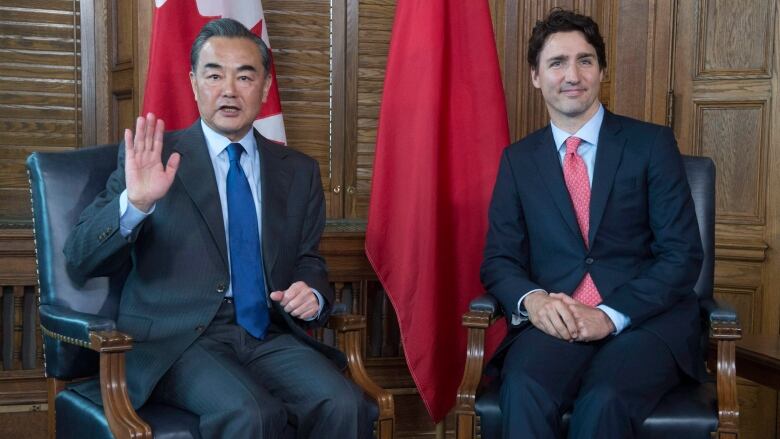Justin Trudeau to visit China starting Aug. 30, attend G20 leaders' summit
PM will also attend G20 leaders' summit in Hangzhou on Sept. 4-5

Justin Trudeau heads to China this month on a visit that's expected to lay the groundwork for his approach to Canada's sometimes-bumpy relationship with the world's second-biggest economy.
The prime minister's week-long tour, from Aug. 30 to Sept. 6, will stop in Beijing, Shanghai, Hong Kong and Hangzhou for the G20 leaders' summit.
Trudeau has signalled his intention to deepen business ties with China, as his government looks to make inroads into the rapidly expanding Asian markets. The push could one day lead to a free-trade deal, something China has said it would like to pursue.
- John McCallum wants to 'substantially increase' immigration to fill Canada's labour needs
- Canada seeks to double visa offices in China to attract more high-skilled workers
But Trudeau will also have to carefully balance any pursuit of business ambitions in China with concerns over human rights in the country.
He has already been forced to deal with one high-profile irritant between the two countries.
In June, he expressed his "dissatisfaction" with China after its foreign minister publicly berated a Canadian journalist. In doing so, Trudeau also said he would take a stand with China on human rights.
During a news conference in Ottawa, Chinese Foreign Minister Wang Yi criticized a journalist who asked about his country's human rights record. Visibly upset, Wang said the question reflected "arrogance," and was "full of prejudice" and "irresponsible."
In response, Trudeau said he would continue to bring up human rights concerns "every chance we get," even as his Liberal government worked to expand its economic relationship with China.
"The fact is the way Canada has always engaged best in the world is to be active and vocal about the things that we are concerned about and disagree on, while at the same time looking for common ground that will be of mutual benefit for all of our citizens," Trudeau said.
The Trudeaus and China
He also said he raised the case of a Canadian, Kevin Garratt, who has been jailed in China on espionage charges. Trudeau said Garratt was "in prison for espionage without any evidence to support the allegations and accusations."
More recently, Canada weighed in last month on the ongoing South China Sea dispute with a thinly veiled call to China to abide by an international ruling that has angered Beijing.
China, however, appears to still have high expectations of the Trudeau government.
Trudeau had a positive exchange last year with Chinese President Xi Jinping during his first foreign trip after the Canadian election. When they met in Turkey at the G20, the Chinese leader praised Trudeau's father, Pierre, for establishing diplomatic relations with the People's Republic in 1970.
During his Ottawa visit, Wang praised past Liberal governments of Jean Chretien and Paul Martin for advancing relations with China. He did not mention the previous decade under Stephen Harper's Conservative government.
The Harper era
Harper got off to a frigid start with China in 2006 when he said he would not back away from criticizing their human rights record. He also said he would not sell out Canada's values for the sake of the "almighty dollar."
But later in his prime ministership, Harper worked to forge stronger business ties with China.
During a visit to China in late 2014, Harper announced the opening of new trade offices in some of China's fastest-growing areas. He also said a half-million Canadian jobs depended upon Canadian-Chinese trade.
Trudeau said in a statement Thursday that the upcoming trip will create new opportunities for Canadian businesses and the economy, which has been stuck in a slow-growth rut.
"I will strive for a closer, more balanced relationship between Canada and China, one that unlocks the untapped potential in our two countries' commercial ties, and advances important issues like good governance, the rule of law and the environment," said Trudeau, who was invited by Chinese Premier Li Keqiang.
China and its exploding middle class, offer considerable business potential for Canadian firms.
The statement also said G20 leaders will consider measures on how to lift global economic growth and investment, and reinforce the global financial system.